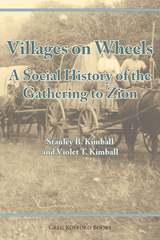Author: Rachel Whipple
-
Caught
I’ve been reading news stories about people dealing with addiction and depression, people who have committed secret transgressions that finally broke out of their control and caused public ruin and shame for the sufferers and their families. There is so much pain and heartbreak, both for those innocents who must bear the consequences and for…
-
Prudence, Altruism, and Curses
Prudence requires that we recognize the reality of times other than the present, specifically, future times. Altruism requires that we recognize the reality of people other than ourselves. Prudence allows us to delay gratification for our own future benefit. We budget, we plan ahead, we save for a rainy day. Altruism allows us to do things…
-
How do we say goodbye?
How do we say goodbye to those who choose to leave the Church? We who stay are torn, pulled on the one hand by our faith and hope for salvation, ours and theirs, and on the other hand by respect for their agency and personal revelation. Do we feel better about people who make a…
-
Object Lessons!
I am pretty much exhausted by the discussion of modesty and chastity in both LDS and feminist circles. This is unfortunate timing because my daughter has not yet started in Young Women’s, so I know we’ll be subjected to several more years of these lessons in the near future. Instead of dreading these earnest discussions…
-
Not a Legitimate Rape
I’ve been listening to the radio this morning about the Republican Party platform and abortion and rape. I’ve never had an abortion; thankfully I’ve never been in a situation where that seemed like a viable option. I am thankful that the Church handbook allows for abortion, but even there the wording is “forcible rape or…
-

The Rifts of Rime
Finally, a book by Steve Peck that I can read with my children! At first my husband thought that would be A Short Stay in Hell; it is only 70 pages, but I had to disabuse him of that notion. As much as children enjoy thinking about infinity (How can anything go on forever? But…
-
Changes
We talk about our Heavenly Father loving us, and our leaders say they love us, but sometimes it feels like they mean “us” in general, and not “me” in particular. We are told that almost any righteous man and woman can have a successful marriage if they are both committed, if both of them have…
-

Dam Comments
Too much attention to those awkward stones just adds to them and makes a dam, and I seriously don’t want to have to bring out the dynamite and blow it away.
-
A Song of Embodiment
Anything I’m able to think is because of everything I feel. And everything I feel is this wonderful embodiment, this solid physicality. Everything begins as physical sensations that are then co-opted, abstracted, and re-appropriated by the mind. Love in the abstract began as a warm feeling of security and comfort and a belly full of…
-
A Finite Population?
So how many people do we think will exist in the whole of humanity throughout our history?
-

O Pioneer! Book Review of Villages on Wheels
The 4th of July is a week of intense patriotic celebration in Provo. Freedom Festival is the biggest party of the year here. People go all out with block parties, fireworks, parades, races, and art contests. We end the week exhausted. As a relative newcomer to Utah Valley, I’ve wondered why is Independence Day is…
-
The Threat of New Order Mormons
I’ve been struggling to articulate to myself the difficulties that true blue Mormons have with new order Mormons. I’m not satisfied with what I’ve been able to come up with, and I hope you will be able to help me work through this. The struggles of Mormons going through a faith transition to become new…
-
Gendered Unity
Every ward or branch I’ve lived as an adult has struggled with the dilemma of how to increase a sense of unity among the Relief Society sisters. In some places, demographics have dictated a natural split between the transient (a few months to a few years) young college and graduate age students, wives, and mothers…
-

Church Centers: Multi-use Buildings?
When we lived in La Jolla, the kids and I were members of the La Jolla YMCA. There was a child care center that would watch my little preschoolers for a couple of hours while I exercised and showered. I worked with a trainer and learned to use machines and free weights. I took aerobics,…
-
O My Father
“My father, thou art the guide of my youth” (Jeremiah 3:4). We turn to him for guidance, for help and counsel as we age and learn our own fallibilities. It is Father’s Day. Today, we recognize the important role that men play in loving and caring for children. Too often, I get caught up on…
-
In Memoriam
I spend the morning with my children at the cemetery. The high school band played, the mayor placed a wreath at the war memorial, and servicemen, including a veteran of Pearl Harbor, spoke to us. We bought red paper poppies to pin to our shirts. We didn’t talk about Memorial Day in sacrament meeting yesterday.…
-
Post-structuralist Mormon?
I played with deconstruction a little bit this semester. It probably wasn’t a good idea; I didn’t feel I had a firm grasp on Derrida; his ideas squirmed away from me like slippery little fish. But it seemed like so much fun, like such a powerful tool; how could I resist? It was like fire…
-
The Same 10 Families
With the exception of student wards, every ward or branch I’ve attended seems to rely on a few families to fill all of the major callings. We’ll call them “the same ten families.” In our Long Island branch, there were about six families that carried the load. The branch president was married to the young…
-

Lent
We are now in Holy Week, and Lent is ending. I’ve been fasting. It’s nothing onerous; just giving up sweets and meats. I’m not a huge fan of penance and self-flagellation, but to be honest, I probably eat too much of both categories for both my conscience and my health. But even if a little…
-
Snow, Citizens, and Stewards
It has recently been announced that Steven E. Snow will replace Marlin K. Jensen as the new Church historian. Elder Jensen has been a wonderful historian for our church, bringing both compassion and honesty to the work.I expect this good work will continue under Elder Snow’s direction. I am curious to see what his areas of…
-
Post Holiday Reflections
I enjoyed the holidays this year, but I am glad they are over. The tree is no longer shedding needles in our living room, and the few lights and garlands we hung have been taken down. We celebrated a simple Christmas here, with very few decorations other than the nativities and the tree. We exchanged…
-
O Come, All Ye Faithful
“O come, all ye faithful, joyful and triumphant.” My eyes started welling up as we sang in church this morning. I want to answer the call to come, but I don’t know that I can call myself faithful. So often, I feel my lack of faith, my doubt, my cynicism. And I work all the…
-
If Jesus came for dinner…
What would you serve the Savior if he came to your house for dinner? Would you give him beans and rice? Or would you buy a good steak and make a nice meal?” I sat there, thinking about this. My conclusion was that, yes, I actually would serve the Savior beans and rice if he…
-
Meditation
This world is not conducive to contemplation, to meditation. We are encouraged to read the scriptures, fast, pray and meditate. But how do we meditate? There are some simple steps we can take on a regular basis to clear our minds. Some of these meditation techniques are borrowed from other traditions.
-
Thrift as a Principle of Stewardship
In my post last month, I wrote about fundamental scripture based doctrine that lead us to value the earth. Now I would like to demonstrate that Mormons care for the earth through their stewardship, primarily in the management of our own homes and families. The first principle of stewardship is thrift. If we as a…
-
Chicken Little Eating Crickets: When a mindset turns a windfall into a catastrophe
The panic prone little bird concluded the sky was falling, heralding the end of all creation when a nut fell from the tree above him, bonking him on the head. Something had indeed fallen, giving him a slight injury, but it was not the sky. It was actually lunch–vital sustenance handed to him, a grace…
-
Daily Bread
“Give us this day, our daily bread, And forgive us our debts, as we forgive our debtors.” This is the prayer in my heart, the words my mind speaks each time I cut a slice of bread. I don’t bake bread every day, but all of the bread my family eats, I have baked. This…
-
Mormons Do Care about the Earth
Mormons do care about the earth. We care about preserving, protecting, and maintaining it. We care about the earth because 1) We love God, 2) We care about other people, and 3) We believe in the intrinsic value of the earth.
-
Charity Unbidden
Saturday night, several talks of the General Relief Society Broadcast addressed charity. I was left with the general impression that we should want to cultivate feelings of charity towards others, and that as we desire to have charity, we will gain it. I carry a sketch book and pencils with me. An adult only church…
